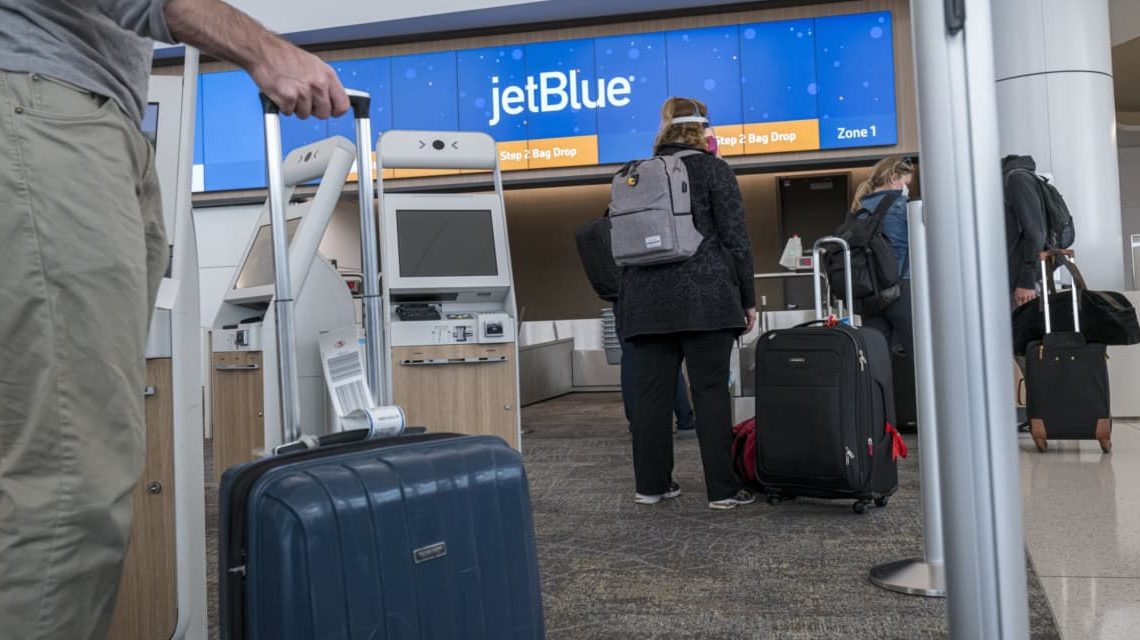JetBlue
Airways posted a narrower-than-expected loss and turned in higher revenue than expected for the fourth quarter, but management’s financial guidance is weighing on the stock.
The outlook highlights the challenges incoming CEO Joanna Geraghty faces as she seeks to return the low-cost airline to profitability without merging with Spirit Airlines, as it had intended to do.
The two carriers have appealed a court ruling blocking the deal, but JetBlue said Friday that the merger agreement may be terminated this week. Spirit said there is no basis for terminating the merger.
JetBlue reported an adjusted loss of 19 cents per share on revenue of $2.33 billion in the final three months of 2023. Wall Street was expecting a loss of 27 cents per share from revenue of $2.29 billion.
However, for the first quarter of 2024, JetBlue said it expects revenue to fall between 5% and 9% from the previous year. while analysts surveyed by FactSet see a 5.5% drop. Full-year revenue is expected to be flat, compared with analysts’ estimates of a 0.4% decline.
JetBlue also plans to fly less in 2024, with capacity down by a percentage in the low single digits. Costs are also rising: JetBlue expects costs per available seat mile excluding fuel—an industry metric—to rise by a mid-to-high single-digit percentage this year.
The company also said it has reached an agreement to defer $2.5 billion of planned capital expenditures from 2024-2027 to 2028 and later, “providing a more consistent level of annual aircraft deliveries through the end of the decade.”
The stock fell 4% in early trading Tuesday.
“As we look ahead in 2024, we are seeing positive momentum in our revenue growth. Demand during peak periods remains strong, and we continue to manage our capacity during off-peak periods to reflect evolving demand trends,” Geraghty said.
JetBlue
investors have long been distracted by the carrier’s now-unlikely merger with
Spirit.
But the low-cost carrier’s earnings provide insight into the airline’s future without the growth the deal would have brought.
The two airlines are seeking an expedited appeal of the ruling blocking the transaction, Reuters reported Tuesday, citing a joint court filing. Still, the most likely outcome is that Geraghty will have to occupy herself with running the existing JetBlue, rather than overseeing a merger that would have created the fifth-largest U.S. airline. Restoring profitability is likely to be her main focus, and she said Tuesday that the company will take “aggressive action” in order to do so.
She takes over from Robin Hayes next month.
Chief Financial Officer Ursula Hurley added that management were “carefully evaluating deeper cuts” to JetBlue’s controllable costs. “I am confident in our ability to re-establish profitability and position JetBlue to restore historical earnings power,” she said.
Low-cost carriers have found the postpandemic world tougher going than the legacy carriers—
United Airlines Holdings,
Delta Air Lines
and
American Airlines Group
—as cost pressures have hit their margins and consumers have typically been happier to spend more on premium travel in recent years. The discount carriers also don’t have much international exposure, which helped the larger carriers last year in particular.
JetBlue does have a growing international presence, but it has still found quarterly profit hard to come by. The fourth-quarter loss makes it three quarterly losses out of four in 2023. Analysts expect the same this year.
With capacity falling and costs rising, the goal of profitability looks like a tough task at the moment.
Write to Callum Keown at [email protected]
Read the full article here









